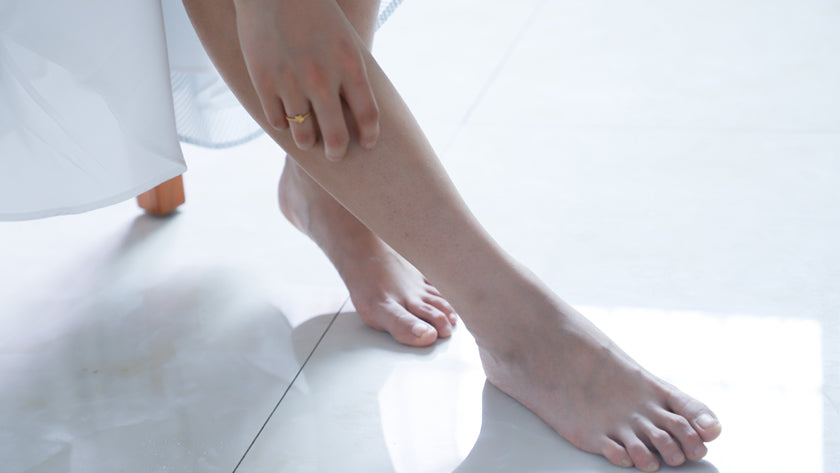
Burning feet: 6 Causes and how to treat them
Burning feet is a painful sensation that usually occurs due to injury to nerves in the legs and feet, generally resulting from situations like diabetic neuropathy, alcoholism, nutritional deficiencies, infections, or injuries that affect the spine or nerve pathways, among others.
However, many people may have a burning sensation or heat in their feet for other reasons, such as alterations in blood circulation, excessive use of unsuitable shoes, hormonal changes, or injuries to surrounding ligaments or muscles, as occurs in plantar fasciitis, for example.
When the foot burning sensation occurs frequently, it is essential to consult a general practitioner for an evaluation and initiate the appropriate treatment, which may vary according to the cause and may indicate the use of more comfortable shoes, the practice of physical activity, or changes in diet.
Main causes of burning feet include:
- Diabetic neuropathy
Diabetic neuropathy involves progressive nerve degeneration, which causes a decrease in sensitivity in various parts of the body, mainly in the feet and other extremities such as the hands, leading to symptoms like tingling, pain and burning. This complication is more common in people who do not perform a diabetes treatment, presenting high blood sugar levels on a frequent basis.
How to treat: in this case, visit an endocrinologist or neurologist so that the best treatment can be indicated, which may involve sugar control in the diet, use of insulin, physiotherapy and acupuncture to relieve sensitivity and foot burning.
- Plantar fasciitis
Plantar fasciitis is an inflammation of the fascia, a fibrous tissue located on the soles that extends from the heel to the toes. It causes symptoms such as pain in the soles, a burning feeling and discomfort when walking and running. This situation tends to occur more frequently in overweight people who practice high-impact activities, such as long-distance running, wear high-heeled shoes for long periods of time, or have arthritis or a broken bone in the foot.
How to treat: Visit a traumatologist or rheumatologist. They usually recommend using orthopedic insoles and physiotherapy sessions to improve the symptoms of this condition. In addition, avoiding standing for long hours and reducing impacts during physical exercise, such as running, also alleviate the symptoms of plantar fasciitis.
- Insufficient blood flow
Poor circulation, also known as venous or arterial insufficiency, occurs when blood fails to circulate properly in the lower limbs, causing pain, swelling, tingling and burning in the legs and feet. Symptoms usually worsen during the day when standing for long hours, and improve when the legs are kept elevated.
How to treat: Have a prior consultation with an angiologist, who may indicate the use of compression stockings and prescribe anti-inflammatory drugs to help improve the symptoms of poor circulation. Likewise, avoiding high-heel shoes and standing for long periods of time also contributes to the relief of swelling, pain and burning in the legs and feet.
- Foot disorders
During the day, feet can become overloaded in situations such as intense physical activity or use of unsuitable shoes. Other reasons could be bones and muscles alterations, such as flat feet, bunions, Charcot-Marie-Tooth disease or corns, for example, which can cause pain and burning, mainly at the end of the day.
How to treat: it is necessary to consult an orthopedist to evaluate the symptoms and indicate the best treatment, which may involve physiotherapy sessions, use of oral or locally applied medications, correction of the type of footwear and use of insoles, with the aim of reducing the overload, pain and burning in the muscles and bones of the feet.
- Infections
Infections by herpes virus, shingles, or HIV, for example, can cause inflammation in the peripheral nerves of the body, causing pain, tingling and burning in the feet.
How to treat: Follow the indications of the general practitioner, who may prescribe medications depending on the type of infection, such as antiviral drugs to fight the infectious agent, and analgesics and anti-inflammatory drugs to relieve symptoms.
- Deficiency of B vitamins
Deficiency of B vitamins, such as vitamin B1, B6 and B12, can cause peripheral neuropathy, which is the destruction of nerves, resulting in decreased sensation and a tingling, numbness and burning sensation in the hands and feet.
How to treat: Treatment of B-complex vitamin deficiencies is usually done under the guidance of a physician or nutritionist, who prescribes vitamin supplementation for at least 6 months. It is also necessary to make dietary adjustments, with the help of a nutritionist, to increase the consumption of foods that are a source of B vitamins.











